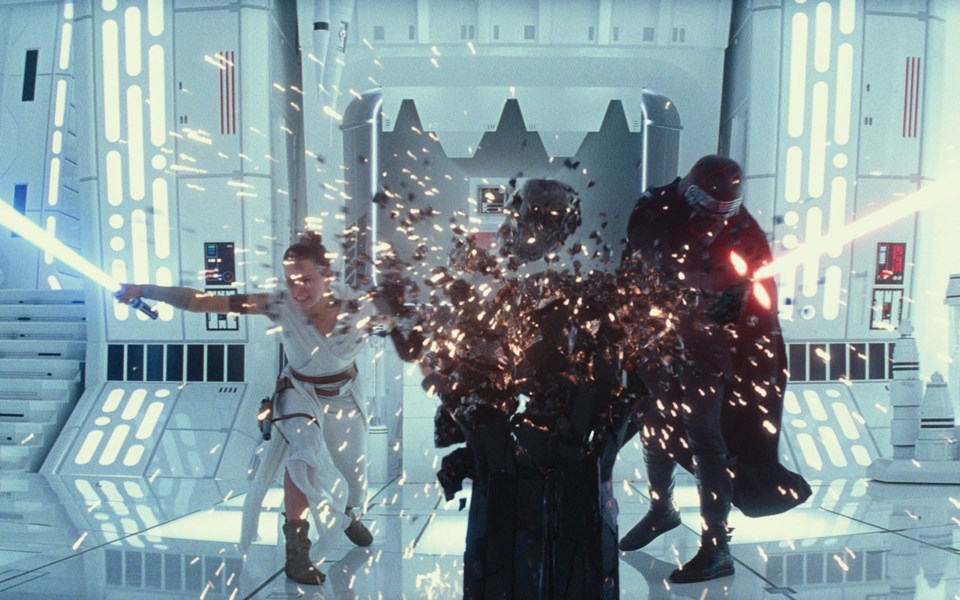For some, the picture on this page already gives away too much. For others, the days leading up to Star Wars: The Rise of Skywalker have been spent reading online aggregates of responses tweeted by celebrities and critics who had the pleasure of a prescreening but are still held under a review embargo.
But most of us who walk into Star Wars this weekend will do so with expectations built solely on our own tastes, biases and (sometimes vague) memories. Which is how director J.J. Abrams (Star Wars: The Force Awakens, Star Trek [2009], Lost, Mission: Impossible III) likely wants it, and how you should want it too—there is a definite lack of pleasant surprises these days (and a surplus of shitty ones).
Which means it's probably best to avoid wise-asses this weekend, and keep your distance from trolls, whistleblowers, party poopers and people in general. And definitely don't go anywhere near the internet, where spoilers will soon start slop-flopping around like penis fish on the beaches of California. (Google that, it's worth it.)
Spoiler culture, of course, is nothing new. Victorian crime novelists used to encounter the same problems—critics giving away the twist—and according to whatculture.com, Hollywood was dealing with the problem as early as 1926, when titles in a silent film called The Bat implored audiences, "Don't reveal the identity of the Bat."
French thrillers of the '50s made the same demands, and for his 1960 classic Psycho, director Alfred Hitchcock instructed theatres to prevent late arrivals from accessing the cinema so as to preserve the early plot twist involving one of the main characters. Hitchcock even took out ads asking that after they see Psycho, audiences, "please stay away from people."
The word "spoiler" came from an article in the April 1971 issue of National Lampoon and by the end of the decade (mostly) book and (some) movie reviews carried the warning, "Spoiler Alert."
In general, audiences and critics did a pretty decent job at keeping quiet, enough so that "I'm your father" surprised enough people it became one of the most ubiquitous pop references of the past four decades.
But times change, and the internet makes it all too easy to ruin a movie, even as you watch it in real time. This past year saw Marvel launch a "Thanos demands your silence" campaign and Quentin Tarantino begging audiences at Cannes not to reveal his latest bit of savage historical revisionism.
So let's just let leave the new Star Wars alone this week, no point spoiling the final (?) installment of a franchise four decades in the making just yet. (Also, I haven't seen it.)
I haven't seen the new Cats movie either, but I can tell you it's a musical and the trailer looks something like taking way too much acid while babysitting your sister's kid's 11th birthday party at Satan's personal animal shelter, with singing.
I've never understood the drive to adapt something written for a stage, a single enclosed physical space, into the vast world of cinema, where no one bats an eye if you want to drive a pimped out DeLorean back to the 1950s to almost accidentally hook up with your own mom before saving the future.
A bunch of cats yowling in an alley can never touch that kind of creative scope, so why bother?
Which reminds me, the Stream of the Week is Framing John DeLorean, a half-documentary, half re-enactment and not-always-endearing look at the renegade American automaker and how he ended up with those suitcases full of cocaine.
Merry Christmas!
Use the force and pray for snow (not that kind, DeLorean).




